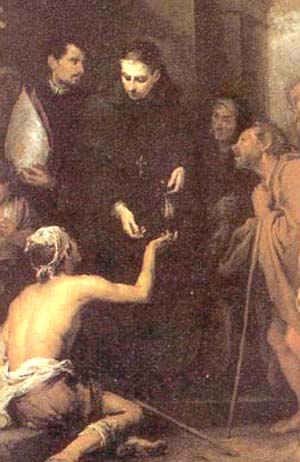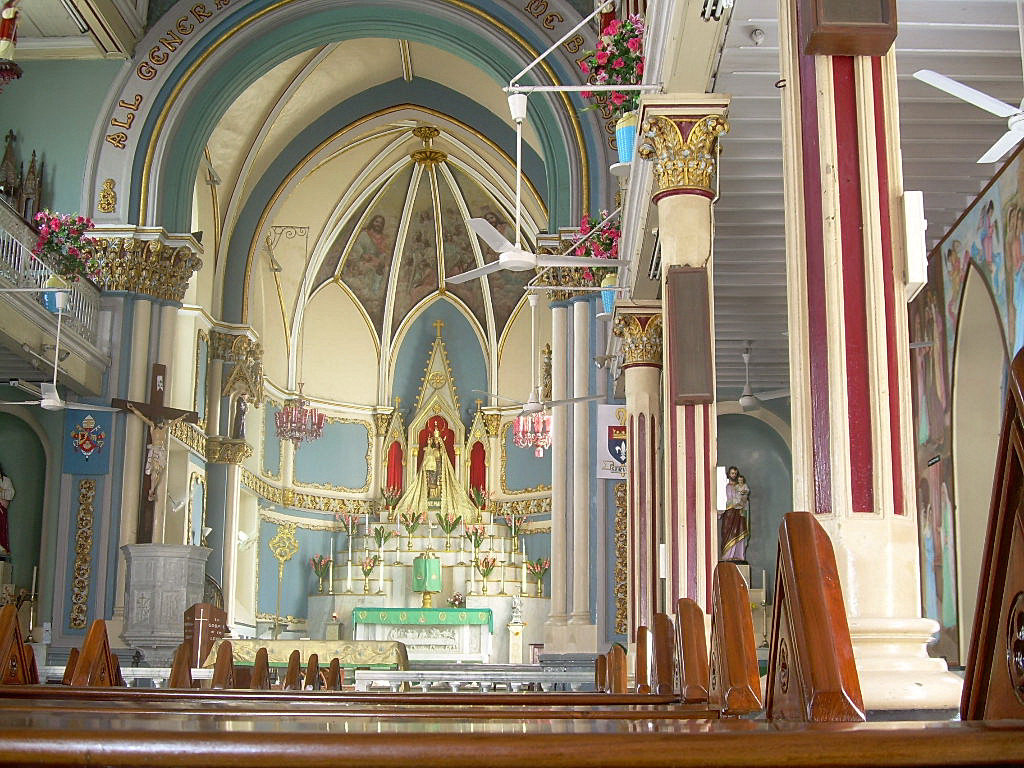Today we celebrate the feast of the life of St. John Chrysotom. Chrysotom actually means 'Golden Mouth'.
He is on of the four great doctors of the Church, and born in 347 in Antioch, Syria. He was prepared for a career in law under the renowned Libanius, who marveled at his pupil's eloquence and foresaw a brilliant career for his pupil as statesman and lawgiver. But John decided, after he had been baptised at the age of 23, to abandon the law in favour of service to the Saviour. He entered a monastery which served to educate him in preparation for his ordination as a priest in 386 AD. From the pulpit there emerged John, a preacher whose oratorical excellence gained him a reputation throughout the Christian world, a recognition which spurred him to even greater expression that found favour with everyone but the Empress Eudoxia, whom he saw fit to examine in some of his sermons.
When St. John was forty-nine years old, his immense popularity earned him election to the Patriarchate of Constantinople, a prestigious post from which he launched a crusade against the excessiveness and extreme wealth which the Empress construed as a personal affront to her and her royal court. This also gave rise to sinister forces that envied his tremendous influence. His enemies found an instrument for his indictment when they discovered that he had harboured some pious monks who had been excommunicated by his arch rival Theophilos, Bishop of Alexandria, who falsely accused John of treason and surreptitiously plotted his exile.
When it was discovered that the great St. John had been exiled by the puppets of the state, there arose such a clamour of protest, promising a real threat of civil disobedience, that not even the royal court dared to confront the angry multitudes and St John was restored to his post. At about this time he put a stop to a practice which was offensive to him, although none of his predecessors outwardly considered it disrespectful; this practice was applauding in church, which would be considered extremely vulgar today, and the absence of which has added to the solemnity of Church services.
St. John delivered a sermon in which he deplored the adulation of a frenzied crowd at the unveiling of a public statue of the Empress Eudoxia. His sermon was grossly exaggerated by his enemies, and by the time it reached the ears of the Empress it resulted in his permanent exile from his beloved city of Constantinople. The humiliation of banishment did not deter the gallant, golden-mouthed St. John, who continued to communicate with the Church and wrote his precious prose until he died in the lonely reaches of Pontus in 407.
Fore more details about the life of St John Chrysotom refer to http://www.chrysostom.org/life.htmlFor the writings of St John Chrysotom refer to http://www.chrysostom.org/writings.html
















